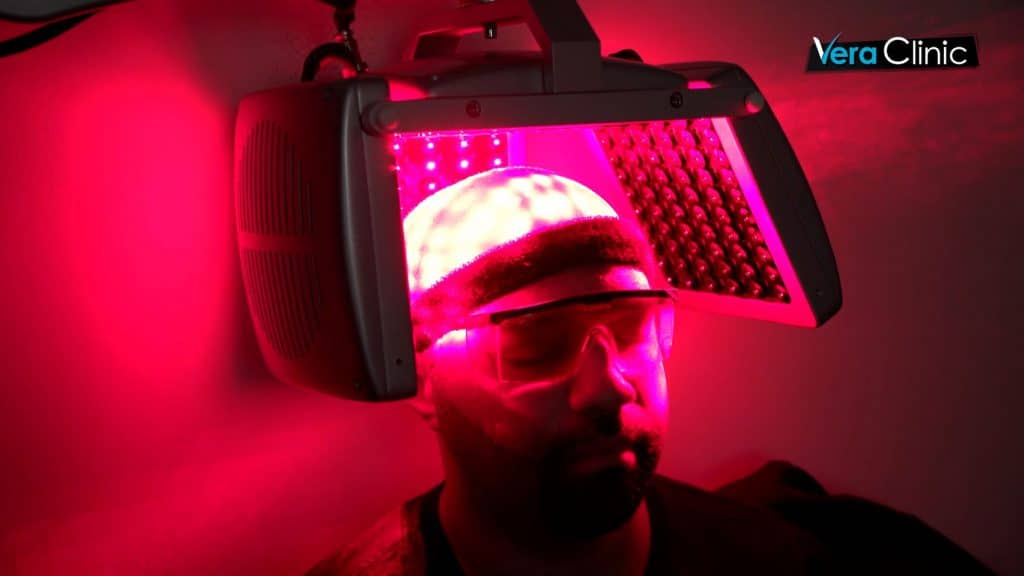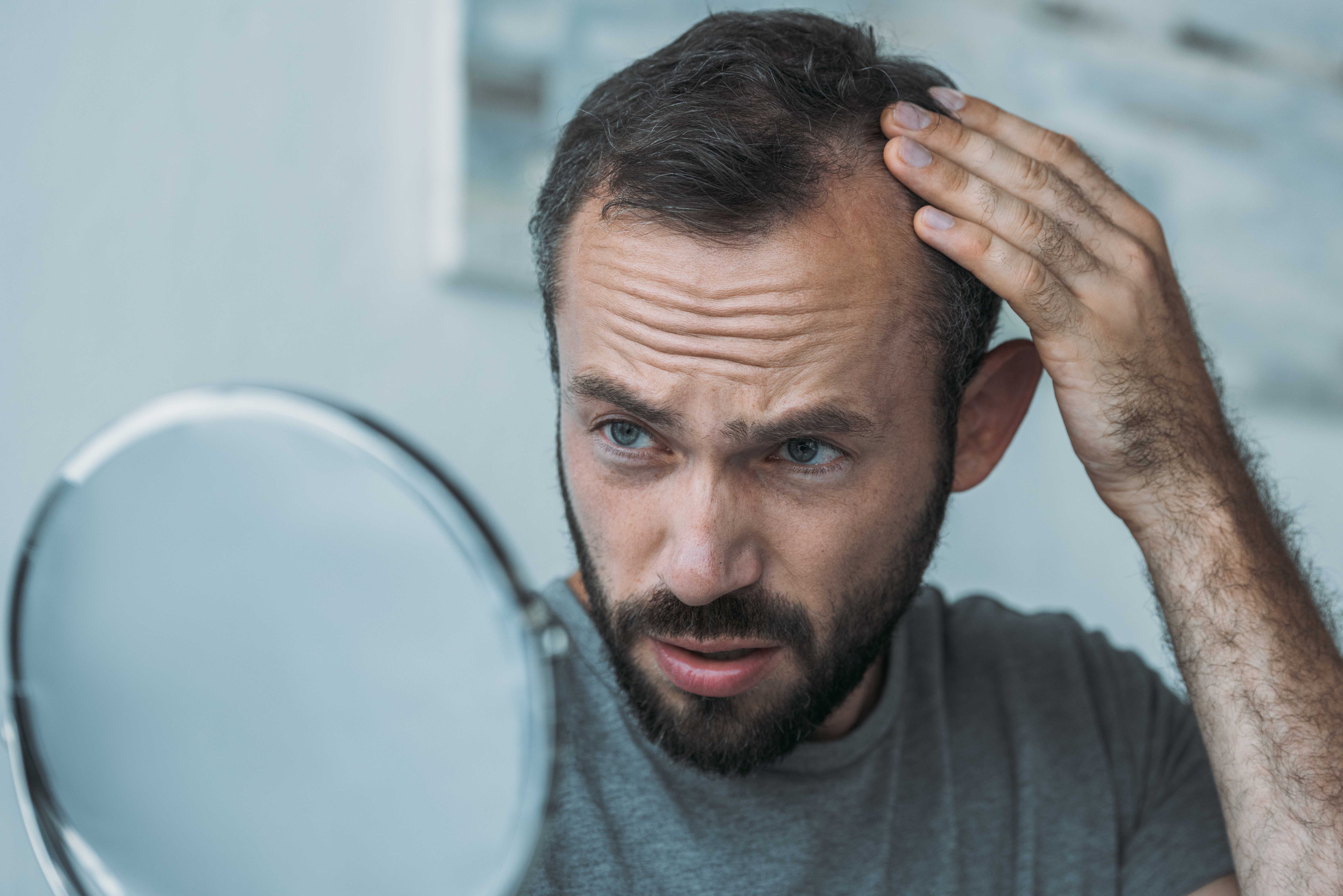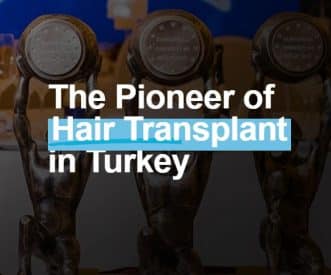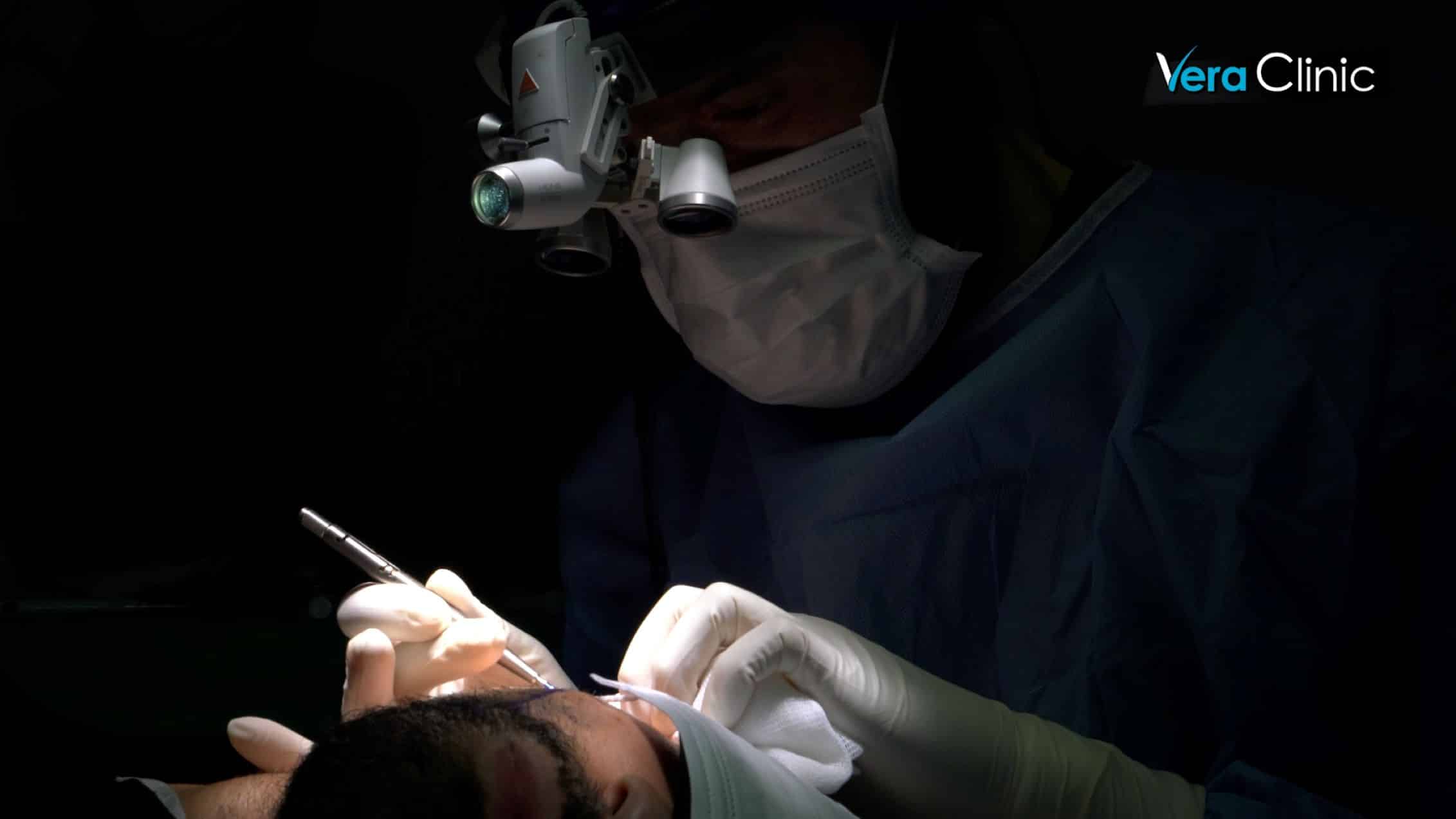Do these substances cost you your hair? An early Hair Transplant can be the solution
Hair loss is a common concern for many individuals, and there are several factors that can contribute to this issue, from genetics to stress. One potential cause of hair loss is the use of anabolic steroids. Anabolic steroids are synthetic versions and derivatives of the male hormone testosterone, and they are often used to enhance athletic performance and build muscle mass. However, these steroids can have various side effects, and hair loss is one of them. Understanding the link between steroids and hair loss is essential for individuals who use or are considering using anabolic steroids.
In this post, we take a deeper look at the causes of hair loss associated with steroid use and discuss potential solutions for preventing and treating this issue with hair transplants. We will also delve into the different types of steroids and their effects on hair follicles. Additionally, we will address common misconceptions and myths surrounding steroids and hair loss.
Note: If you are someone who is using or planning to use steroids, it is vital to be aware of the potential side effects, including hair loss. By understanding the science behind steroid-induced hair loss and implementing preventative measures, you can minimize the risk, maintain healthy hair and act early with hair transplant solutions with the best hair transplant clinics in the world.
Understanding Steroids and Their Uses
Anabolic steroids, also known as anabolic-androgenic steroids (AAS), are synthetic variations of the male hormone testosterone. These steroids are primarily used to enhance athletic performance and promote muscle mass growth. Originally they were pretty much only used by bodybuilders and athletes, but have since creeped into the average gym goer’s gym bag. However, they can also be prescribed as a medication for certain conditions, such as hormone imbalances and muscle wasting diseases. Anabolic steroids work by increasing protein synthesis in cells, leading to enhanced muscle growth and strength. They also have anti-inflammatory properties and can suppress the immune system. It’s important to note that the misuse or abuse of anabolic steroids can have serious health consequences and may lead to various side effects, including hair loss.
The Link Between Steroids and Hair Loss
There is a well-documented link between steroids, particularly anabolic steroids, and hair loss. Steroids can disrupt the natural hair growth cycle by affecting the hair follicles.
When anabolic steroids are used, they can increase androgen levels in the body, which can lead to a condition called androgenic alopecia, commonly known as male pattern baldness. This condition is characterized by hair thinning, particularly in a specific pattern on the scalp.
Steroid use can also cause a temporary condition called telogen effluvium, where a large number of hair follicles enter the resting phase and eventually shed. This can result in noticeable hair thinning.
How Steroids Contribute to Hair Loss
- Steroids, specifically anabolic steroids, contribute to hair loss by affecting the hair follicles and disrupting the natural hair growth cycle.
- When PEDS and anabolic steroids are used, they can increase the levels of androgens, including dihydrotestosterone (DHT), in the body.
- Elevated levels of DHT can shrink the hair follicles, leading to shorter and thinner hair strands. Over time, this can result in hair thinning and eventually hair loss.
It’s important to note that not everyone who uses steroids will experience hair loss, and the extent of hair loss can vary depending on individual factors such as genetics and the duration and dosage of steroid use.
The Science Behind Steroid-Induced Hair Loss
The science behind steroid-induced hair loss involves the interaction between hair follicles, hormones, and the effects of anabolic steroids.
Hair growth is a complex process that involves the growth phase (anagen), resting phase (telogen), and shedding phase (exogen) of the hair follicles. Anabolic steroids, specifically those that increase androgen levels like DHT, can disrupt this process.
DHT is a byproduct of testosterone, which can bind to androgen receptors in the hair follicles, leading to miniaturization of the follicles. This results in shorter, finer hair strands and eventually hair loss.
The exact mechanisms by which anabolic steroids affect hair follicles and DHT levels are still being studied, but it is believed that the increased androgen levels and the sensitivity of hair follicles to DHT play a significant role in steroid-induced hair loss.
Steroids and Hair Loss in Men vs. Women
The impact of steroids on hair loss can vary between men and women due to differences in hormonal profiles and genetic factors.
In men, steroid use, particularly anabolic steroids, can accelerate male pattern baldness, a specific pattern of hair loss characterized by hair thinning in the crown and frontal areas of the scalp. This condition is primarily influenced by genetics and the sensitivity of hair follicles to DHT.
In women, steroid use can lead to female pattern hair loss, which is characterized by diffuse hair thinning all over the scalp. Hormonal imbalances caused by steroid use can contribute to this type of hair loss.
Addressing Myths About Steroids and Hair Loss
There are several myths and misconceptions surrounding the relationship between steroids and hair loss. Let’s address some of them:
Myth 1: All steroids cause hair loss.
Reality: Hair loss is primarily associated with anabolic steroids, particularly in individuals who are genetically predisposed to male pattern baldness. Other types of steroids, such as corticosteroids like prednisone, are not known to directly cause hair loss.
Myth 2: Steroid-induced hair loss is always permanent.
Reality: The extent and permanence of steroid-induced hair loss can vary depending on individual factors such as genetics, dosage, and duration of steroid use. In some cases, hair loss can be temporary and may grow back once steroid use is discontinued.
Preventative Measures for Steroid-Induced Hair Loss
While hair loss caused by steroids can be challenging to prevent entirely, there are some preventative measures that individuals can take to minimize the risk:
- Maintain a healthy lifestyle: A balanced diet, regular exercise, and stress management can help promote overall hair health.
- Follow proper hair care routines: Regular washing, conditioning, and gentle handling of the hair can help minimize damage and maintain healthy hair.
- Consider alternative treatment options: Individuals who are concerned about hair loss can explore alternative treatment options like minoxidil, finasteride, and other hair growth therapies under the guidance of a healthcare professional.
Tips to Minimize the Risk of Hair Loss When Using Steroids
To minimize the risk of experiencing this side effect, consider the following tips:
- Practice good hair care: Gently wash and condition your hair regularly, and avoid harsh styling products and excessive heat.
- Avoid tight hairstyles: Avoid hairstyles that pull or strain the hair, as this can lead to hair breakage and damage.
- Protect your hair from environmental stressors: Use hats or scarves to protect your hair from excessive sun exposure, wind, and pollution.
- Discuss hair loss prevention options with a healthcare professional: Consult with a healthcare professional for personalized recommendations on hair loss prevention measures and potential treatment options.
Treating Hair Loss Caused by Steroids
If you’re experiencing this unfortunate side effect, there are various treatment options available to promote hair regrowth and restore the appearance of your hair:
- Topical treatments: Topical minoxidil and finasteride are FDA-approved medications that can stimulate hair regrowth and slow down hair loss.
- Advanced hair restoration techniques: Advanced techniques like platelet-rich plasma (PRP) therapy, low-level laser therapy (LLLT), and microneedling can stimulate hair follicles and promote hair regrowth.
- Hair transplant: In severe cases of hair loss, a hair transplant procedure can be considered, which involves transplanting hair follicles from a donor area to the areas of thinning or baldness.
Topical Treatments and Their Effectiveness
Topical treatments like minoxidil and finasteride have been proven effective in treating hair loss caused by various factors, including steroids.
Minoxidil is an FDA-approved medication available in various strengths (2% and 5%) and can be applied topically to the scalp. It works by increasing blood flow to the hair follicles, stimulating hair growth, and slowing down hair loss.
Finasteride, also known as Propecia, is a prescription medication that can help treat male pattern baldness. It works by reducing the levels of dihydrotestosterone (DHT), a hormone that contributes to hair loss in genetically susceptible individuals.
When used as directed and under the guidance of a healthcare professional, both minoxidil and finasteride can be effective in promoting hair regrowth and preventing further hair loss.
Advanced Hair Restoration Techniques at Vera Clinic
Vera Clinic has been providing hair transplant operations for a decade and is staffed with the best hair transplant doctors in Turkey. The Clinic has been on the rise, being the best hair transplant clinic in Turkey since it was established.
When it comes to the point that you may need a hair transplant, Vera Clinic offers advanced hair restoration techniques to individuals experiencing hair loss, including hair transplants. Generation Iron has had first hand experience at Vera and toured the entire facility in 2024.
Hair transplant is a surgical procedure that involves transferring healthy hair follicles from a donor area to the areas of thinning or baldness. This procedure allows for natural hair regrowth and a restored appearance.
- At Vera Clinic, expert surgeons perform hair transplants using the latest techniques, such as Follicular Unit Extraction (FUE) and Direct Hair Implantation (DHI). These techniques ensure precision, natural-looking results, and minimal scarring.
- Vera Clinic is known for its success stories and patient satisfaction. With a team of experienced professionals and cutting-edge technology, Vera Clinic provides personalized consultations and tailored treatment plans to address individual needs and achieve optimal hair restoration results.
Why Choose Vera Clinic for Hair Transplant?
Choosing the right clinic for your hair transplant is crucial for achieving successful results. Here’s why you should consider Vera Clinic:
- Success stories: Vera Clinic has a track record of successful hair transplant procedures and satisfied patients who have achieved natural-looking hair restoration results.
- Advanced technology: Vera Clinic utilizes advanced technology and techniques, such as FUE and DHI, to ensure precise and effective hair transplants.
- Expert consultation: At Vera Clinic, you will receive personalized consultations and guidance from experienced healthcare professionals who specialize in hair restoration.
The Expertise and Technology Behind Vera Clinic’s Success
Vera Clinic’s success in hair restoration is a result of its commitment to providing top-quality care and utilizing cutting-edge technology:
- Healthcare provider: Vera Clinic is a trusted healthcare provider specializing in hair restoration and transplant procedures. With years of experience, the clinic ensures the highest level of safety, professionalism, and patient care.
- Cutting-edge technology: Vera Clinic utilizes advanced technology and techniques to perform hair transplants, such as robotic-assisted FUE and DHI. These technologies ensure precise and effective results with minimal scarring.
- Expert team: Vera Clinic’s team consists of experienced surgeons, technicians, and healthcare professionals who specialize in hair restoration. Their expertise, attention to detail, and personalized approach ensure optimal outcomes and patient satisfaction.
Frequently Asked Questions
Can Hair Loss from Steroids Be Completely Reversed?
Hair loss from steroids can vary in its reversibility. In some cases, hair loss can be temporary and may grow back once steroid use is discontinued. However, the extent of hair regrowth depends on individual factors, and complete reversal may not always be possible.
How Long Does It Take to See Results from Hair Transplant?
The timeline for seeing results from a hair transplant can vary from person to person. In general, it takes several months for transplanted hair follicles to take root and start growing. Full results can typically be seen within 9-12 months after the procedure.
Conclusion
Steroids can have a significant impact on hair loss, affecting both men and women differently. Understanding the science behind steroid-induced hair loss is essential to address this issue effectively. By dispelling myths and implementing preventative measures like incorporating essential vitamins and supplements, you can minimize the risk of hair loss while using steroids. If hair loss does occur, exploring topical treatments and advanced restoration techniques at Vera Clinic can provide effective solutions. With a focus on expertise, technology, and success stories, choosing Vera Clinic for hair transplant ensures comprehensive care for managing steroid-induced hair loss.
Generation Iron may receive commissions on purchases made through our links. See our disclosure page for more information.
Let us know what you think in the comments below. Also, be sure to follow Generation Iron on Facebook, Twitter, and Instagram.













